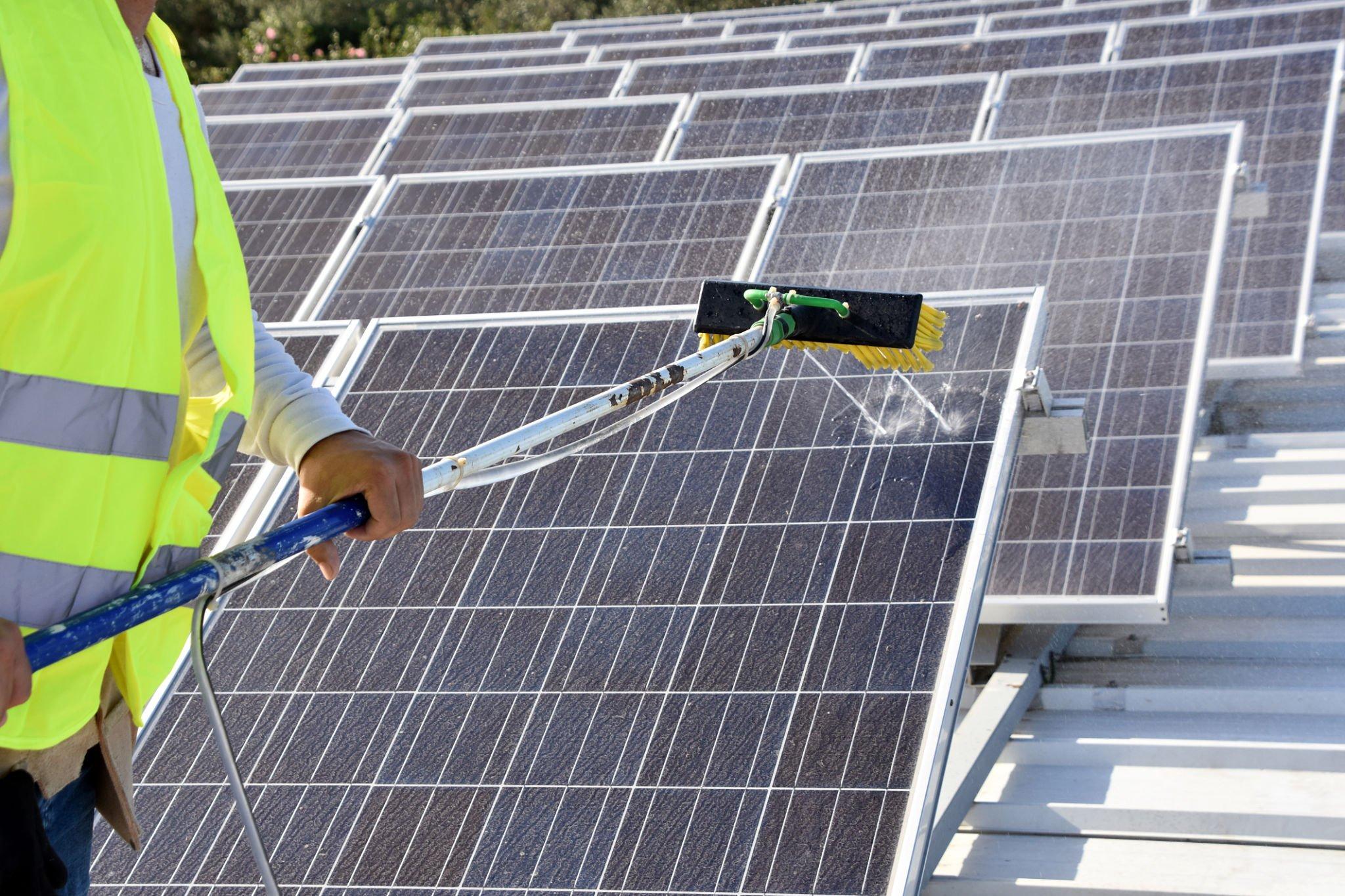
Unleashing the Economical Benefits of Solar Panels: Powering Savings and Sustainability
Solar panels not only contribute to a greener and more sustainable future but also offer numerous economical benefits. As an investment in clean energy, solar panels can deliver long-term financial advantages for homeowners and businesses alike. Let’s explore the economical benefits that come with embracing solar power:
Energy Cost Savings: One of the most significant economical benefits of solar panels is the potential for substantial energy cost savings. By generating your own electricity, you reduce reliance on the grid and the associated costs of purchasing electricity. Solar panels allow you to offset a significant portion, if not all, of your energy consumption, resulting in lower monthly utility bills and long-term savings.
Return on Investment (ROI): Installing solar panels is an investment with a high potential for return. While the upfront cost may vary depending on the system size and installation, solar panels typically pay for themselves over time. With the energy cost savings and potential government incentives, homeowners and businesses can achieve a favorable ROI, enjoying free electricity once the system has paid for itself.
Energy Independence: Solar panels provide a sense of energy independence, shielding you from fluctuating energy prices and potential utility rate increases. By generating your own electricity, you gain control over your energy future and reduce vulnerability to market dynamics. This stability and predictability contribute to long-term financial security and peace of mind.
Government Incentives: Many governments around the world offer financial incentives to encourage solar adoption. These incentives can include tax credits, rebates, grants, and feed-in tariffs. Taking advantage of these programs can significantly reduce the upfront cost of installing solar panels, enhancing the economic viability of solar projects.
Increased Property Value: Solar panels can boost the value of your property. Studies have shown that homes equipped with solar panels tend to sell at a premium compared to non-solar homes. Potential buyers recognize the long-term cost savings associated with solar energy, making solar-equipped properties attractive and desirable in the real estate market.
Environmental Responsibility: While not a direct financial benefit, embracing solar power aligns with environmental responsibility. As more individuals and businesses transition to clean energy sources, the overall demand for fossil fuels decreases. This shift helps mitigate environmental damage and fosters a more sustainable planet for future generations.
Business Advantages: Commercial entities can reap additional economic benefits from solar panel installations. Besides energy cost savings, businesses can enhance their brand image and reputation by showcasing their commitment to sustainability. Going solar can attract environmentally conscious customers, create positive public relations, and differentiate businesses in a competitive market.
By embracing solar panels, individuals and businesses can harness the economical advantages of renewable energy. The energy cost savings, potential ROI, government incentives, increased property value, and environmental responsibility make solar power a compelling and financially savvy choice.
Other News
DATA PROTECTION
WEBSITE COOKIE POLICY
Protecting the privacy of visitors to the website operated by Fellow Energy at (www.fellowsolarenergy.com) is one of our organization’s fundamental principles. This Cookie Usage Policy (“Policy”) explains the types of cookies used and their conditions to all website visitors and users.
Cookies are small text files stored on your computer or mobile device by the websites you visit.
They are commonly used to provide you with a personalized experience while using a website, improve the services offered, and enhance your browsing experience. If you prefer not to use cookies, you can delete or block them through your browser settings. However, please note that this may affect your use of our website. Unless you change your cookie settings in your browser, we will assume that you have accepted the use of cookies on this site.
1. WHAT KIND OF DATA IS PROCESSED IN COOKIES?
Cookies on websites collect data related to your browsing and usage preferences on the device you use to visit the site, depending on the type. This data includes information about the pages you access, the services and products you review, your preferred language selection, and other preferences.
2. WHAT ARE COOKIES AND WHAT ARE THEIR PURPOSES?
Cookies are small text files stored on your device or server by websites you visit through browsers. These small text files, which include your preferred language and other settings, help remember your preferences for your next visit to the site and aid us in making improvements to our services to enhance your experience. This allows you to have a better and personalized user experience during your next visit.
The main purposes of using cookies on our website are listed below:
- To improve the functionality and performance of the website to enhance the services provided to you,
- To enhance the website and offer new features through the website, personalized according to your preferences;
- To ensure the legal and commercial security of the Website, you, and the Institution, and prevent fraudulent transactions through the Site;
- To fulfill legal and contractual obligations, including but not limited to those arising from the Law No. 5651 on the Regulation of Publications Made on the Internet and Combatting Crimes Committed through These Publications and the Regulation on the Procedures and Principles Regarding the Regulation of Publications Made on the Internet.
3. TYPES OF COOKIES USED ON OUR WEBSITE
3.1. Session Cookies
Session cookies ensure the proper functioning of the website during your visit. They are used for purposes such as ensuring the security and continuity of our sites and your visit. Session cookies are temporary cookies that are deleted when you close your browser, and they are not permanent.
3.2. Persistent Cookies
These cookies are used to remember your preferences and are stored on your device through browsers. Persistent cookies remain even after you close your browser or restart your computer. These cookies are stored in your browser’s subfolders until they are deleted from your browser settings.
Some types of persistent cookies can be used to offer personalized recommendations based on your purpose of using the Internet Site.
Persistent cookies allow us to determine if a cookie created by our Internet Site exists on your device when you visit our Internet Site again with the same device. If it exists, we understand that you have previously visited the site, and the content that will be delivered to you is determined accordingly, thus providing you with better service.
3.3. Necessary/Technical Cookies
These are essential cookies for the proper functioning of the visited website, ensuring necessary services by allowing access to secure sections of the website, using its features, and navigating through it.
3.4. Analytical Cookies
These cookies collect information about how the website is used, including the frequency and number of visits, and show how visitors arrive at the site. The purpose of using these cookies is to improve the functioning of the website, enhance performance, and determine general trends. They do not contain data that can identify visitors. For example, they may show the number of error messages displayed or the most visited pages.
3.5. Functional Cookies
These cookies remember the choices made by visitors within the site, ensuring convenience for the next visit. The purpose of these cookies is to provide ease of use for visitors. For instance, they prevent the need for the site user to re-enter their password on each page they visit.
3.6. Targeting/Advertising Cookies
They measure the effectiveness of the displayed advertisements and calculate how many times advertisements are viewed. These cookies aim to present personalized advertisements according to the interests of visitors.
Likewise, they identify specific interests in the navigation of visitors and present suitable content. For instance, they prevent the same ad from being shown to a visitor in a short period.
4. HOW TO MANAGE COOKIE PREFERENCES?
You can change your preferences regarding cookie usage, block or delete cookies by changing your browser settings.
Many browsers offer options to accept or reject cookies, accept only certain types of cookies, or receive a warning from the browser when a website requests to store cookies on your device.
Furthermore, it is possible to delete previously stored cookies from your browser.
If you disable or reject cookies, you may need to manually adjust certain preferences, and some features and services on the website may not function properly as we won’t be able to recognize and associate your account. You can change your browser settings by clicking on the relevant link from the table below.
5. EFFECTIVENESS OF THE WEBSITE PRIVACY POLICY
The Internet Site Privacy Policy is dated 15/08/2023. If the entire Policy or specific articles are renewed, the effective date of the Policy will be updated. The Privacy Policy is published on the Institution’s website (www.fellowsolarenergy.com) and is made accessible to the relevant individuals upon their request.



